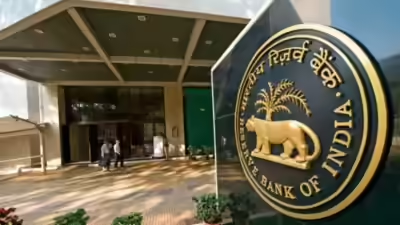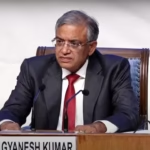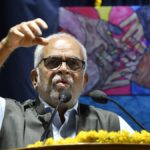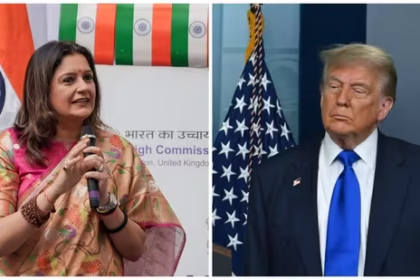AIBOC Warns Against Unilateral Roll-Out of RBI’s AI Framework Without Dialogue & Safeguards
New Delhi: The All India Bank Officers’ Confederation has expressed serious concern over the proposed implementation of the Reserve Bank of India’s ‘Framework for Responsible and Ethical Enablement of Artificial Intelligence’ – FREE-AI – without structured consultations with trade unions, civil society groups, and consumer organisations.
The Confederation (AIBOC), said it a statement that while it acknowledges the framework’s aspiration to make AI trustworthy, fair and accountable, it will be a top down, time-bound imposition without social dialogue. Such a move, it says, would risks legal uncertainty, consumer harm, exclusion of vulnerable segments, and put fresh stress on the already stretched public sector banks.
AIBOC is India’s largest organisation of bank officers, representing more than 325,000 officers across public sector and private banks.
AIBOC highlighted the following concerns and says that they require immediate, consultative resolution before sector wide adoption. The Wire is quoting the following eight points directly from its press statement.
1) AI does not dilute compliance obligations under existing banking, outsourcing, digital lending, IT/cybersecurity and data-protection norms. In practice, however, non deterministic models blur lines of responsibility across banks and vendors. Without explicit liability allocation and AI specific contract clauses, banks face heightened exposure in disputes over adverse decisions, data misuse, bias, and explainability gaps. AIBOC demands clear “adverse action” protocols, documented lawful bases for data use, and audit ready model lineages.
2) The framework pushes accountability to the deploying entity, yet day-to-day decisions will be executed by bank staff. Officers must not be scapegoated for policy compliant model failures. AIBOC seeks RACI based accountability, a model incident register with root-cause analysis, and HR policy addenda that protect employees who follow approved AI SOPs. Disciplinary action must distinguish negligence from systemic or vendor induced errors.
3) Model drift, bias, hallucinations, and adversarial attacks (poisoning, prompt injection, inversion) can amplify small faults at massive scale. AIBOC calls for continuous red teaming, tiered approvals by risk class, SOC integrated AI threat playbooks, and AI specific business continuity with fallbacks and human validation.
4) Early adoption is capital, compute, and talent intensive. Without shared public infrastructure (datasets, compute, multilingual models) and a regulatory sandbox accessible to PSBs/RRBs, private banks could gain a structural edge, accelerating market-share erosion from public to private. AIBOC urges a level-playing-field investment plan backed by the Centre and RBI.
5) AI can widen reach, but it can also encode exclusion. AIBOC insists on a Right to Human Review for retail/MSME/farm decisions; no purely algorithmic denials; bias testing for protected and proxy attributes (region, language, socio economic markers); and simple contest channels with time-bound resolutions. Explanations must be clear, local-language, and outcome-specific.
6) Automation without guarantees on redeployment, upskilling, and non-coercive transitions will fracture morale and service quality. AIBOC demands a no-forced redundancy covenant, a funded national upskilling mission for bank employees, and joint monitoring committees to track impacts on workloads, health, and service delivery.
7) AI may sharpen early warnings and monitoring, but mis-classified risk in stressed conditions can inflate NPAs and write-offs. Banks must implement champion challenger models, rare event stress testing, override tracking, and post outcome monitoring with findings reported to Boards and regulators.
8) If AI disproportionately benefits data-rich corporates while shrinking credit lines for small borrowers, inequality will deepen. Translating the Sutras into practice means proportionate compliance for low risk inclusion use cases, multilingual and low resource models, and explicit targets for rural/priority segments backed by public funding for safe experimentation.
The statement, signed by AIBOC general secretary Rupam Roy has cited how globally, trade unions are increasingly demanding that workers be engaged before AI is introduced to any industry.
“AI can only deliver sustainable productivity gains when workers’ voices, rights, and protections are placed at the centre of technological change,” it said.
Noting that it is not “anti-technology,” AIBOC demanded that a National Council for AI in Banking with be constituted with representation of banking trade unions, civil society, and consumer advocates. “Publish a White Paper and hold open consultations before codification,” it says.
It has also asked for a phased approach, with a moratorium on high risk AI use cases until guardrails (human in the loop, recourse, fairness audits, AI BCP, incident reporting) are operational and independently validated.
It has also written against forced redundancies and for HR safeguards against scapegoating for policy compliant errors, among other things.
AIBOC said that responsible AI can strengthen public trust “only if it is built with the people who deliver and depend on banking services.”
Also Read: CEC Gyanesh Kumar’s First Press Conference Raises More Questions Than Answers








